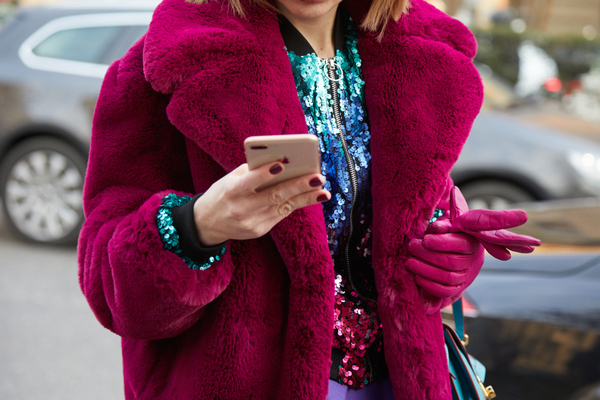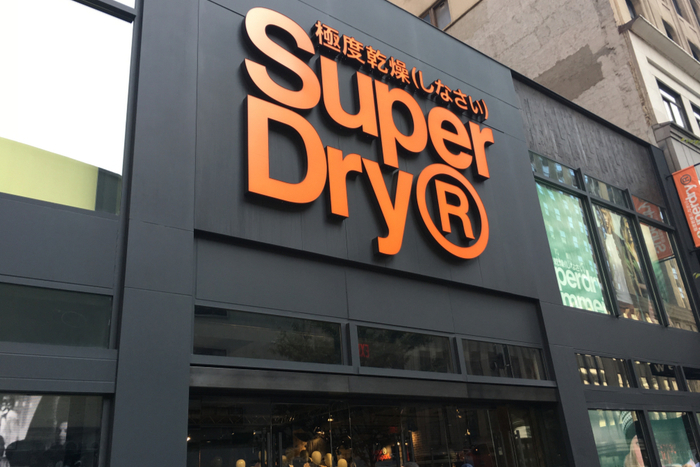In a significant industry decision last month, Kering, the parent company of luxury retailers Gucci, Balenciaga, Saint Laurent and Bottega Veneta, announced that its fashion houses will no longer be using animal fur by this time next year.
Yves Saint Laurent and Brioni were the last of Kering’s brands to ban the use of fur with the conglomerate’s chief executive François-Henri Pinault saying the world “has changed”.
PETA celebrated the move after what it called a “decades-long” push to get Kering to ban the use of fur.
Kering’s new company-wide ban on fur is just the latest in a string of announcements that have recently been made by fashion retailers as consumers become increasingly concerned about the ethics of fur fashion and the cruelty to animals.
Mytheresa announced a fur ban last month while Selfridges also pledged to avoid dur alongside Calvin Klein and Ralph Lauren.
As more retailers join the list, such as Net-a-Porter and Burberry, can we expect to see a complete ban of fur across the fashion sector?
Gergana Damyanova, co-founder and chief executive of the London-based sustainable fashion brand blonde gone rogue said it would be hard to imagine a complete ban of fur across the fashion sector, especially globally.
Damyanov did say that with the increased focus on ethics and the environmental challenges the world is currently facing, she can see that this legislation might be rolled out in some countries.
“I do expect to see the fashion industry self-regulating itself more and that leading to a substantial change,” she told Retail Gazette.
“Change is not easy for everyone”
“With larger, leading companies making the switch to no fur, more and more companies will follow.
“As they develop and popularize alternatives, that trend would undoubtedly trickle through the industry and set a new normal.”
As pressure to stop using fur grows amid increased customer awareness and demand for ethical practices, fashion copywriter Katie Ramsingh said that Gen Z customers in particular are putting increasing pressure on retailers to be radically honest and transparent about their supply chains and ethics.
“Using fur definitely does not fit in with this generation’s woke ideals, real fur is seen as cruel rather than cool,” Ramsingh explained.
Kim van Langelaar, co-founder and Polly Drábová, content & research marketer from the UK’s largest ethical online store Shop Like You Give a Damn said: “If there wasn’t widespread pressure to stop using fur, we truly believe (luxury) retailers would continue to use it.”
“If we could just think about how much effort and time was put into campaigns for banning fur, and then look at how much time it took for retailers to listen and change, it’s simply unthinkable to believe that one day, they would just wake up and choose themselves to not use fur anymore.
“As long as there’s good money in it, we don’t see them be persuaded to – out of the goodness of their own hearts – say their goodbyes to these ‘luxury fabrics’.”

Langelaar and Drábová added that when many brands announce their new fur-free future, they mention that the world is changing and that they need to adapt to it.
They said it’s good to realise that in that, they are not the leaders, they are the followers and that impactful and moral changes don’t just happen.
“They need to be pushed, with a lot of sweat, noise and hard work – and that’s how we got to fashion retailers banning fur.”
Damyanova was in agreeance and said that if there wasn’t widespread pressure, many retailers would continue to use fur but added that we shouldn’t forget that there are still consumers that would like to buy fur products.
“For retailers this is a tradeoff – which consumers do they decide to focus on and which consumers do they decide to let go,” she said.
“By giving up, it’s very likely that they are disappointing consumers that have been with them for a very long time.”
Despite faux fur being widely available at various price points, from high street retailers such as Zara to luxury names including Stella McCartney, Damyanova said that one reason why animal fur is still so popular is because the demand for it is consumer driven.
“Many customers like to stick to what they know, what they’ve been purchasing all their lives and alternatives are sometimes not seen as a sustainable solution but as a lesser product,” Damyanova explained.
As real fur makes its way out of mainstream fashion, there’s now another pressing debate: is faux fur worse for the environment?
While many shoppers are no longer wearing real fur, they haven’t stopped wearing fur look-alikes and as brands try to produce realistic-looking alternatives from synthetic materials the use of plastic and sustainability comes into question.
Wizz Selvey, founder of the retail consultancy company Wizz said that the issue of animal products versus their alternatives is a complex scenario and comparing one to the other without knowing all the details such as durability, production process, sustainability, carbon footprint to name a few makes it hard to define one being better than the other.
“People have different ethics and desires so currently there is room for a number of varieties,” Selvey explained.
“Ultimately it’s about having full transparency of supply chain and benchmarking this against length of use.”
While the jury is still out on if faux fur is better for the environment, it is also unclear on which is cheaper
Langelaar and Drábová said it makes sense for vegan fur and other plant-based alternatives to be cheaper than animal materials.
“To make one vegan fashion item, you don’t need to breed and feed any animals. And in case that the retailers are using synthetic materials which are known to be cheaper, the conclusion about affordability should be an obvious one,” they added.
They explained that naturally, more demand for vegan alternatives will contribute to an environment where they are more affordable as well as accessible than the materials taken from animals.
Click here to sign up to Retail Gazette‘s free daily email newsletter


















